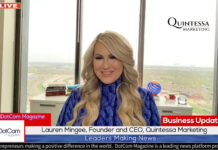Marketing ROI, or Return on Investment, is a critical metric used by businesses to evaluate the effectiveness and profitability of their marketing campaigns and activities. It measures the return generated from marketing investments relative to the cost of those investments. Essentially, marketing ROI quantifies how much revenue or profit is generated for each dollar spent on marketing initiatives. Understanding and optimizing marketing ROI is essential for maximizing the efficiency of marketing budgets, improving decision-making, and demonstrating the value of marketing efforts to stakeholders.
In practical terms, marketing ROI is calculated by comparing the revenue or profit generated from a marketing campaign or activity to the cost incurred to execute that campaign. A positive ROI indicates that the campaign generated more revenue or profit than the cost invested, yielding a profitable return. Conversely, a negative ROI suggests that the campaign did not generate sufficient revenue or profit to cover its costs, indicating a loss.
Optimizing marketing ROI involves various strategies and practices, including:
Setting Clear Objectives: Clearly defining specific and measurable goals for each marketing campaign, such as increasing sales, acquiring new customers, or enhancing brand awareness.
Tracking and Measuring: Implementing robust analytics tools and metrics to accurately track and measure the performance of marketing initiatives. This includes monitoring key performance indicators (KPIs) such as conversion rates, customer acquisition costs, and customer lifetime value.
Attribution Modeling: Utilizing attribution models to accurately attribute revenue and conversions to specific marketing channels and touchpoints. This helps identify which marketing efforts contribute most effectively to overall ROI.
Budget Allocation: Allocating marketing budgets based on ROI potential and prioritizing investments in channels and strategies that consistently demonstrate high ROI.
Testing and Optimization: Conducting A/B testing, experiments, and optimization efforts to refine campaigns and maximize ROI over time. This includes testing different messaging, creative elements, offers, and targeting strategies to identify the most effective approaches.
Integration with Sales: Aligning marketing efforts closely with sales teams to ensure that marketing activities contribute directly to lead generation, customer acquisition, and revenue generation.
Marketing ROI is not only a financial metric but also a strategic tool that guides decision-making and resource allocation within organizations. By consistently measuring and improving ROI, marketers can drive profitability, enhance marketing efficiency, and demonstrate the impact of marketing efforts on business outcomes. This comprehensive approach to understanding and optimizing marketing ROI is crucial for businesses aiming to achieve sustainable growth and competitive advantage in today’s dynamic marketplace.
Methodologies for Measuring Marketing ROI
Measuring marketing ROI involves several methodologies and approaches tailored to the specific goals, industry, and resources of a business. Some commonly used methods include:
1. Incremental Sales Approach:
This method calculates ROI by comparing the additional sales generated as a result of a marketing campaign against the cost of that campaign. It focuses on attributing sales directly to the campaign’s influence, often using tracking tools and customer data.
2. Customer Lifetime Value (CLV):
CLV measures the total revenue generated from a customer over their entire relationship with a business. By estimating CLV and comparing it to the cost of acquiring and retaining customers through marketing efforts, businesses can assess long-term ROI.
3. Attribution Models:
Attribution models help allocate credit for sales and conversions across multiple touchpoints and channels. Models like first-touch, last-touch, and multi-touch attribution provide insights into how different marketing channels contribute to overall ROI.
4. Marketing Mix Modeling (MMM):
MMM uses statistical analysis to quantify the impact of various marketing activities (e.g., TV ads, digital campaigns, promotions) on sales and revenue. It helps optimize budget allocation by identifying the most effective marketing channels.
Challenges in Measuring Marketing ROI
Despite its importance, measuring marketing ROI can pose several challenges for businesses:
Data Integration: Consolidating data from disparate sources (e.g., CRM systems, marketing platforms, sales data) to create a unified view of marketing performance.
Attribution Complexity: Determining the precise contribution of each marketing touchpoint to conversions, especially in multi-channel campaigns.
Time Lag: Marketing efforts often have a delayed impact on sales, making it challenging to attribute revenue accurately in real-time.
Intangible Benefits: Some marketing activities (e.g., brand awareness campaigns) may contribute to long-term ROI but are harder to quantify in financial terms.
Best Practices for Improving Marketing ROI
To enhance marketing ROI, businesses can adopt several best practices:
Set Clear Objectives: Establish specific, measurable goals for each marketing campaign, aligned with overall business objectives.
Use Technology and Analytics: Invest in marketing automation tools, CRM systems, and analytics platforms to track and measure campaign performance accurately.
Test and Iterate: Conduct A/B testing and experiments to optimize campaign elements (e.g., ad copy, targeting criteria) based on performance data.
Focus on Customer Experience: Prioritize strategies that enhance customer satisfaction and loyalty, leading to higher CLV and repeat purchases.
Align Sales and Marketing: Foster collaboration between sales and marketing teams to ensure alignment on goals, strategies, and measurement metrics.
Monitor and Adjust: Continuously monitor KPIs and metrics, making data-driven adjustments to campaigns and strategies as needed.
Implications of Optimizing Marketing ROI
Optimizing marketing ROI has significant implications for businesses:
Resource Allocation: Efficiently allocate budget and resources to channels and campaigns that yield the highest ROI, maximizing profitability.
Strategic Decision-Making: Inform strategic decisions related to product development, pricing strategies, market expansion, and customer acquisition.
Demonstrate Value: Justify marketing investments to stakeholders and secure buy-in for future initiatives by demonstrating tangible returns.
Competitive Advantage: Gain a competitive edge by consistently improving marketing efficiency and effectiveness compared to industry peers.
Sustainable Growth: Drive sustainable growth by reinvesting savings from optimized ROI into innovation, customer experience enhancements, and market leadership initiatives.
Conclusion
In conclusion, marketing ROI is a pivotal metric that guides businesses in evaluating the effectiveness and profitability of their marketing efforts. By leveraging methodologies such as incremental sales analysis, customer lifetime value, attribution models, and marketing mix modeling, businesses can gain valuable insights into the impact of their marketing activities. Overcoming challenges like data integration, attribution complexity, and measuring intangible benefits requires robust analytics, technology investments, and a strategic approach to campaign planning and execution. Adopting best practices such as setting clear objectives, using analytics tools, testing and iterating, and aligning sales and marketing efforts can help businesses optimize marketing ROI and achieve sustainable growth. Ultimately, mastering marketing ROI empowers businesses to make informed decisions, allocate resources effectively, and drive impactful marketing strategies that contribute to long-term success and profitability.

















